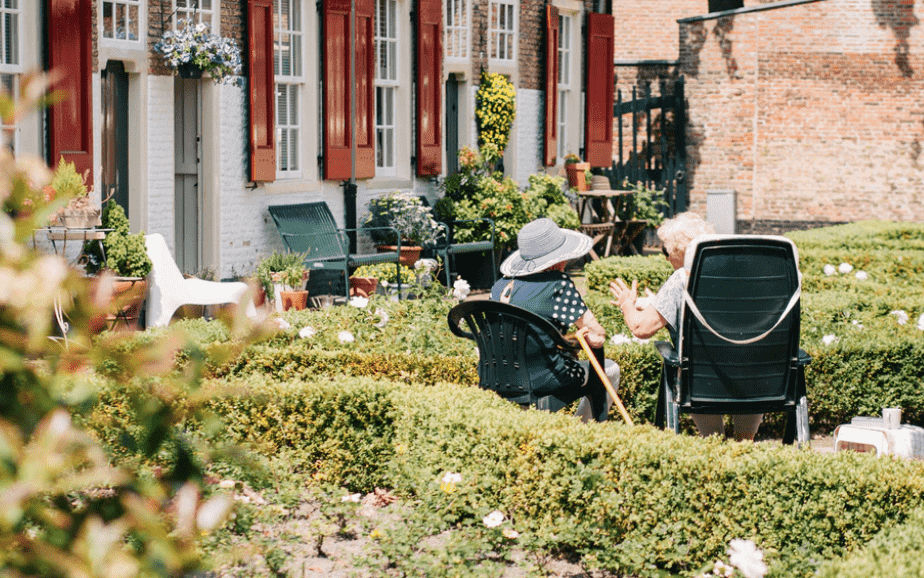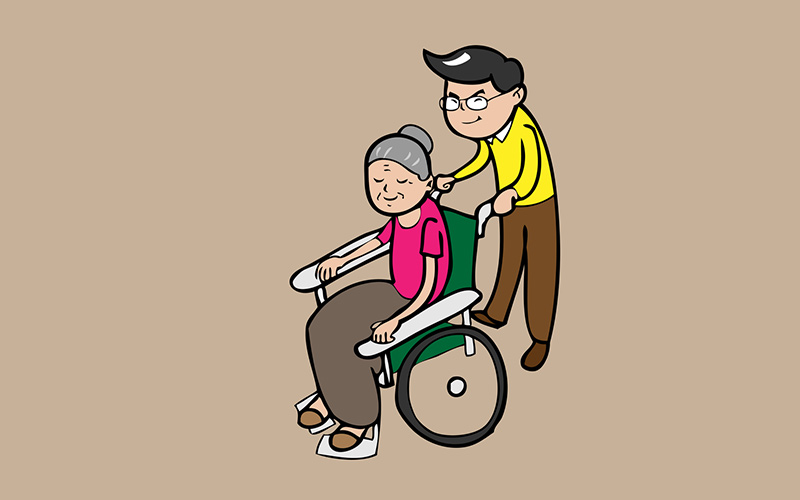Getting old can be tough.
This statement is as true for teenagers as it is for senior citizens. Senior living homes help to deal with the day to day, but there are a lot of needs that seniors have that these facilities can’t help with.
If you’re fortunate enough to have grandparents who you enjoy being around and that are still alive, you need to make the most of it while you still can.
It’s kind of cliche, and no matter how much I try to drill this home, it won’t really hit you until it’s too late. That’s the tough thing about advice, sometimes. Anyone who has lost a loving grandparent wishes they could go back and do things a bit differently.
1. It Gets Lonely
A senior living facility can be a lot of fun for some people, to be totally honest. It’s not all a big downer. Some seniors make new friends, they get along with the staff, they go out outings and generally just make the most of it. Just like younger people, not everyone is as skilled socially and some folks have trouble making friends, they don’t feel like going out and about, and basically they become depressed in that environment. Still, care is necessary. So, what can you do?
Visit them, send them cards, give them things to remind them of family, go out of your way to make the effort. A visit once a week might seem like a lot to you, but imaging not seeing anyone you love for weeks at a time?
Not to mention everything else they’re dealing with as it pertains to pain, depression, and their own mortality. Having loved ones around improves quality of life, it’s been demonstrated time and time again.
2. Advocacy is Crucial
Being around also means that the staff can put a face to the family of the resident. Some homes are busy, and while unintentional, not everyone will necessarily get the exact same level of care and attention if there isn’t a family member around to advocate for them, and to make sure everything is going well.
You have to let the nurses and care-givers do their job, of course, you don’t want to be breathing down their neck over every little thing, but listening to your family member when they have concerns and advocating for them is huge.
3. Empathy Goes a Long Way

If you’re visiting someone, putting in a lot of effort (including researching articles online, like you’re doing right now), and advocating for them – you’re very special, and they’re lucky to have you. Depending on how they’re doing, they might not always express this. They might not be the type of person to gush over it, or to express gratitude, and you might even be the target of their frustrations from time to time. If they lash out on you, that’s not okay but empathy can help you understand that they’re probably dealing with a lot, and they probably aren’t actually upset with you.
Whether or not you knew them when they were younger and more spry can have an impact on this, too. For example, if they’re dealing with dementia or other forms of memory loss, they won’t always be aware of what you’ve done or that you’re doing. That doesn’t mean you aren’t doing the right thing, but it can get hard when it feels like you aren’t being appreciated.
Even if you have a narcissistic grandma, that doesn’t mean she needs to just be discarded. At a certain point in someone’s life, you need to just recognize that they are who they are, you aren’t going to change them, and you can take care of them in a way that you’ll feel good about for your own sake.
It can get kind of tricky, though. When you’re doing a lot to care for someone, even if they are struggling, that doesn’t mean you should put up with abuse or forget about your own well-being. There’s a certain balancing act, but being here and caring about being a good carer, means that your loved one is a lot luckier than the majority of people living in senior care situations whose families or loved ones just aren’t as involved, or they just stop by to put in their time but don’t think about it too much other than that.
